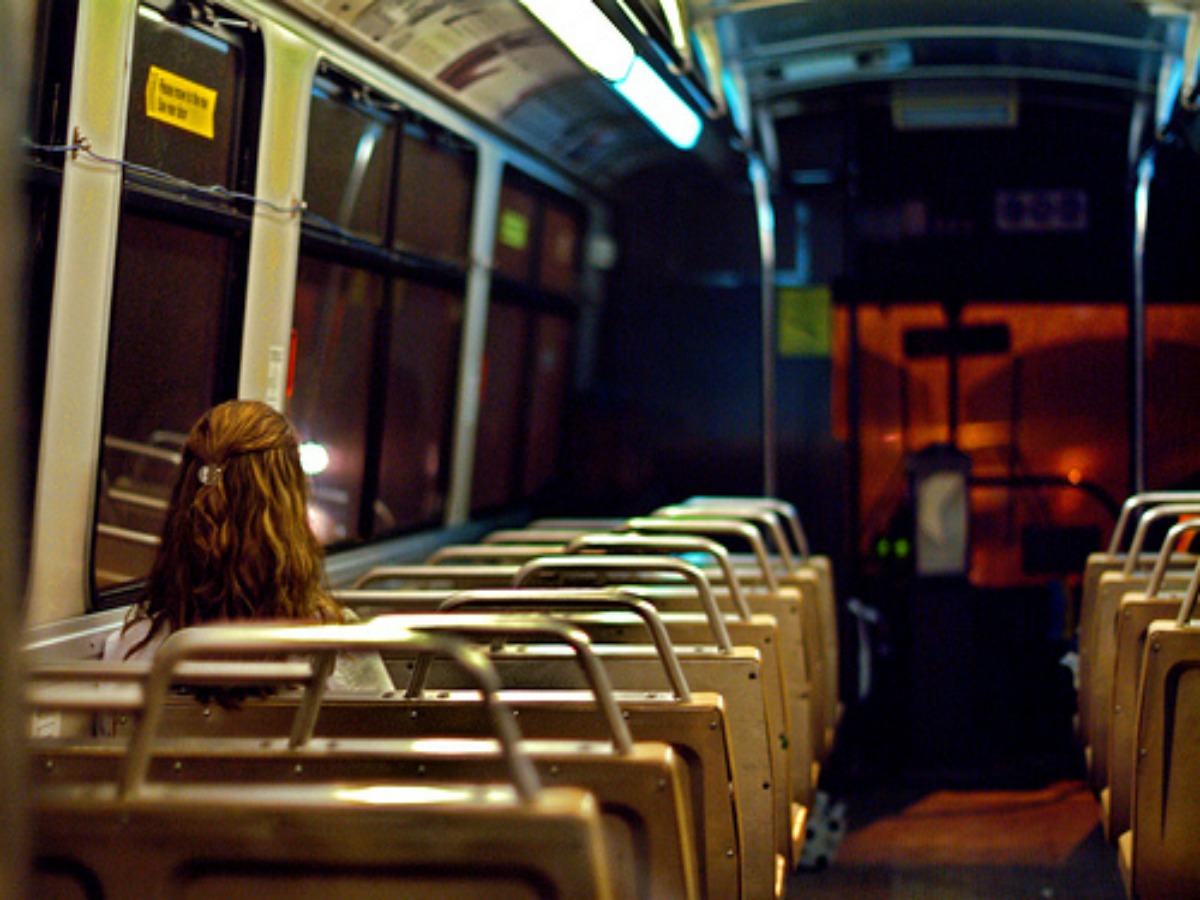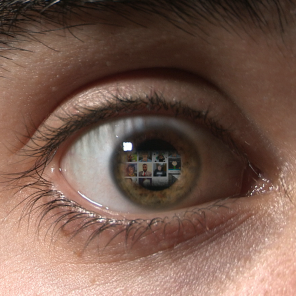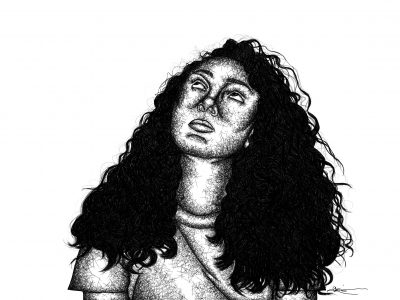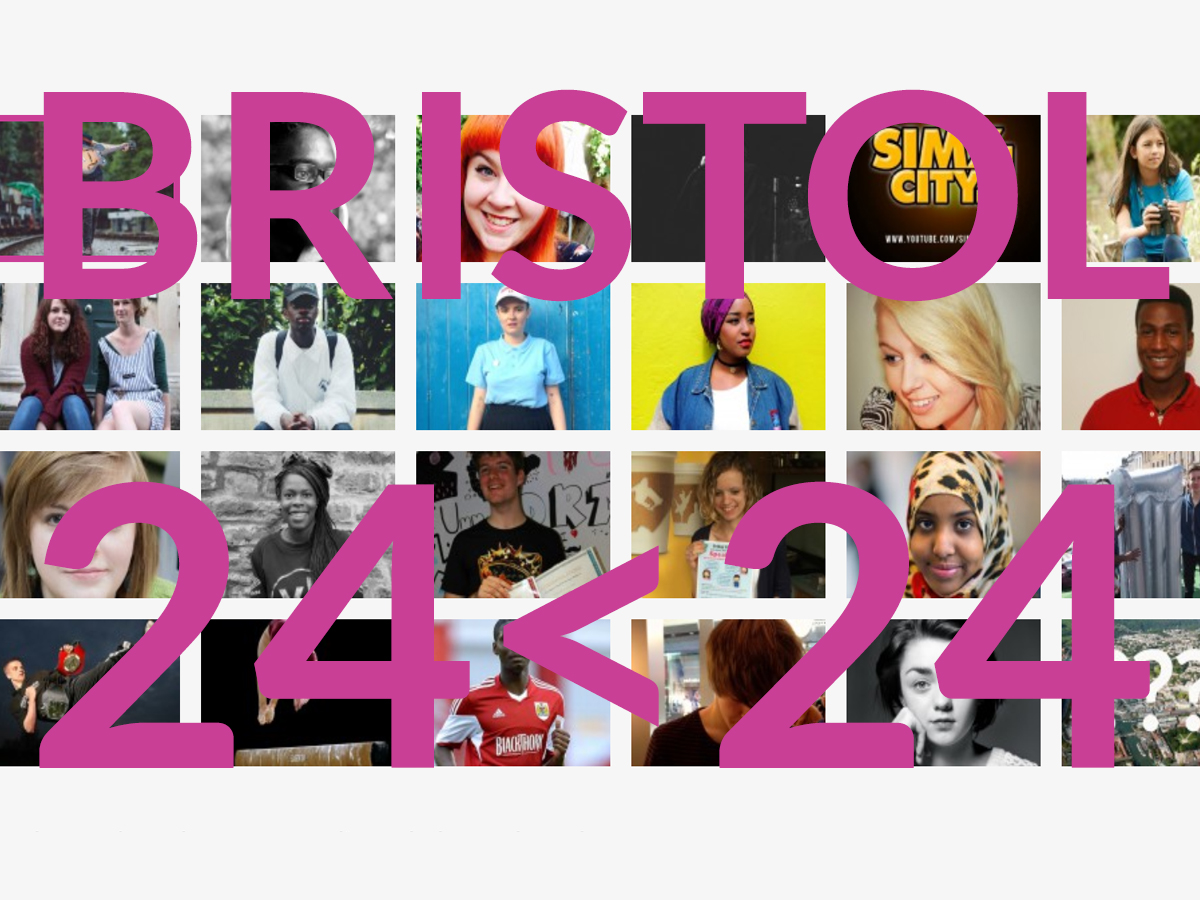How young female director Julia Head makes her plays happen
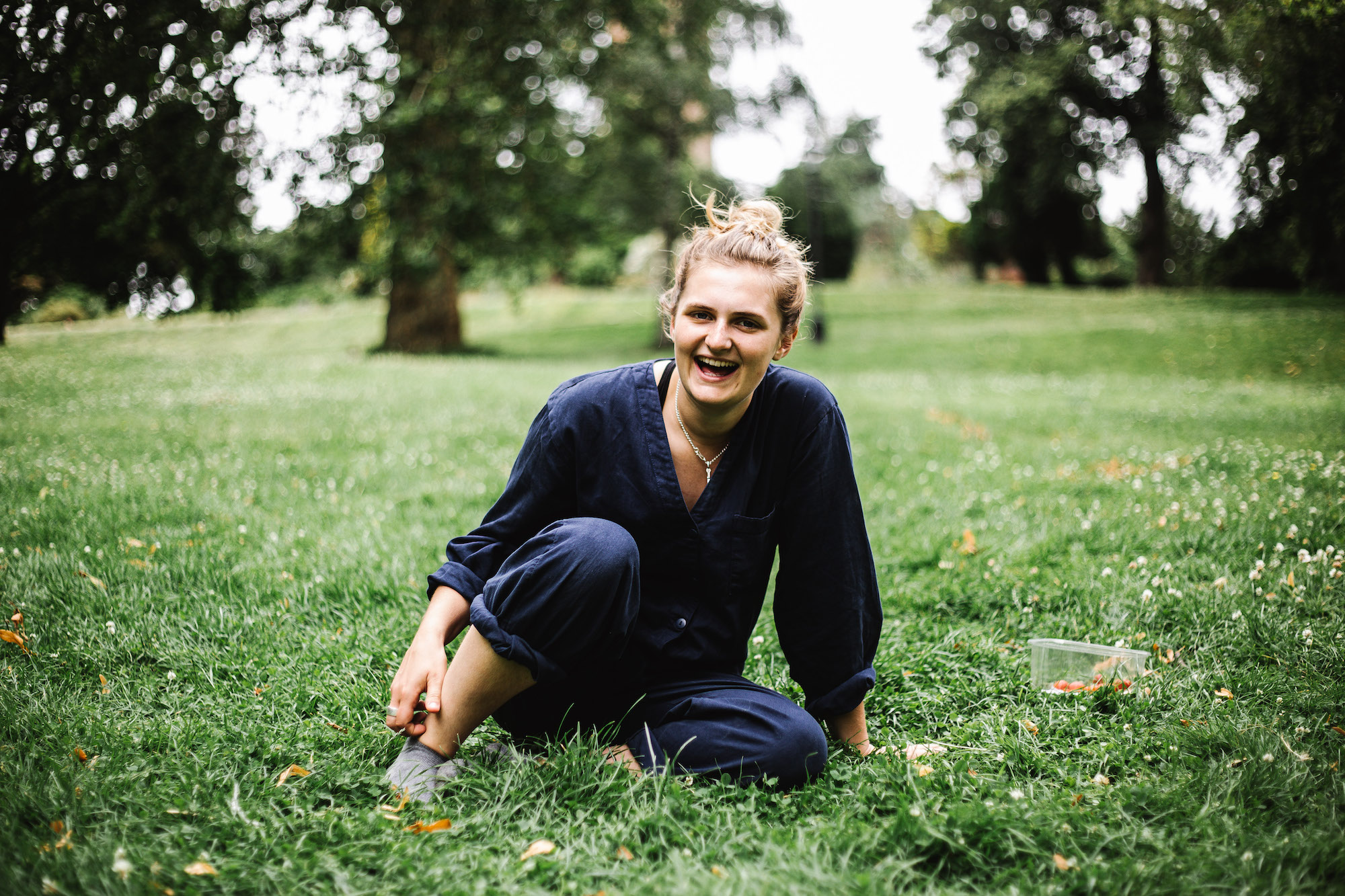
We talk to the expectation-subverting director on how she got her latest production, Wild Swimming, on stage at 22
If you think directing is all about being old, mean, male, and shouting through a megaphone a lot, then theatre director Julia Head will be a breath of fresh air into your lungs. Alongside the rest of the team at her theatre company, FullRogue, she puts new plays through their paces by ‘stress-testing’ them beyond their usual limits, making new nuggets of theatrical gold every night they’re onstage. The latest result of this refreshing, combative approach is Wild Swimming, which is on at Bristol Old Vic from next Tuesday till Saturday 21 September. Julia told us what that play is about, her style of directing, and loads more. She likes to talk in CAPITALS and we think that’s brilliant.
For someone who has no idea what a theatre director might do – what do you do?
Directing is different for everybody…I can’t talk on behalf of Nicholas Hytner or Tom Morris who are big dog theatre boyz that run theatres – they’d probably be sick if they saw how my rehearsal room worked.
But, I think a director gets to be the audience before the audience arrives. You get to be an ignorant child, you get to ask BIG questions and provoke different ways of doing things. I normally have a ‘vision’ for the final piece but I know that it will end up looking nothing like that at all because I am working with lots of people who are far more INTELLIGENT and BRILLIANT than me, and that’s pretty cool.
I collaborate very closely with everyone I work with. I believe in a process of spending time with the people you want to make work with, cooking for each other, playing together, wasting time together, sitting in the unknown together and eventually, through lots of failure, emerging with something exciting.
I think making theatre is a bit like sports really. You should train really hard, you should sweat together, you should share half-time oranges together and then each night you should try to win again.
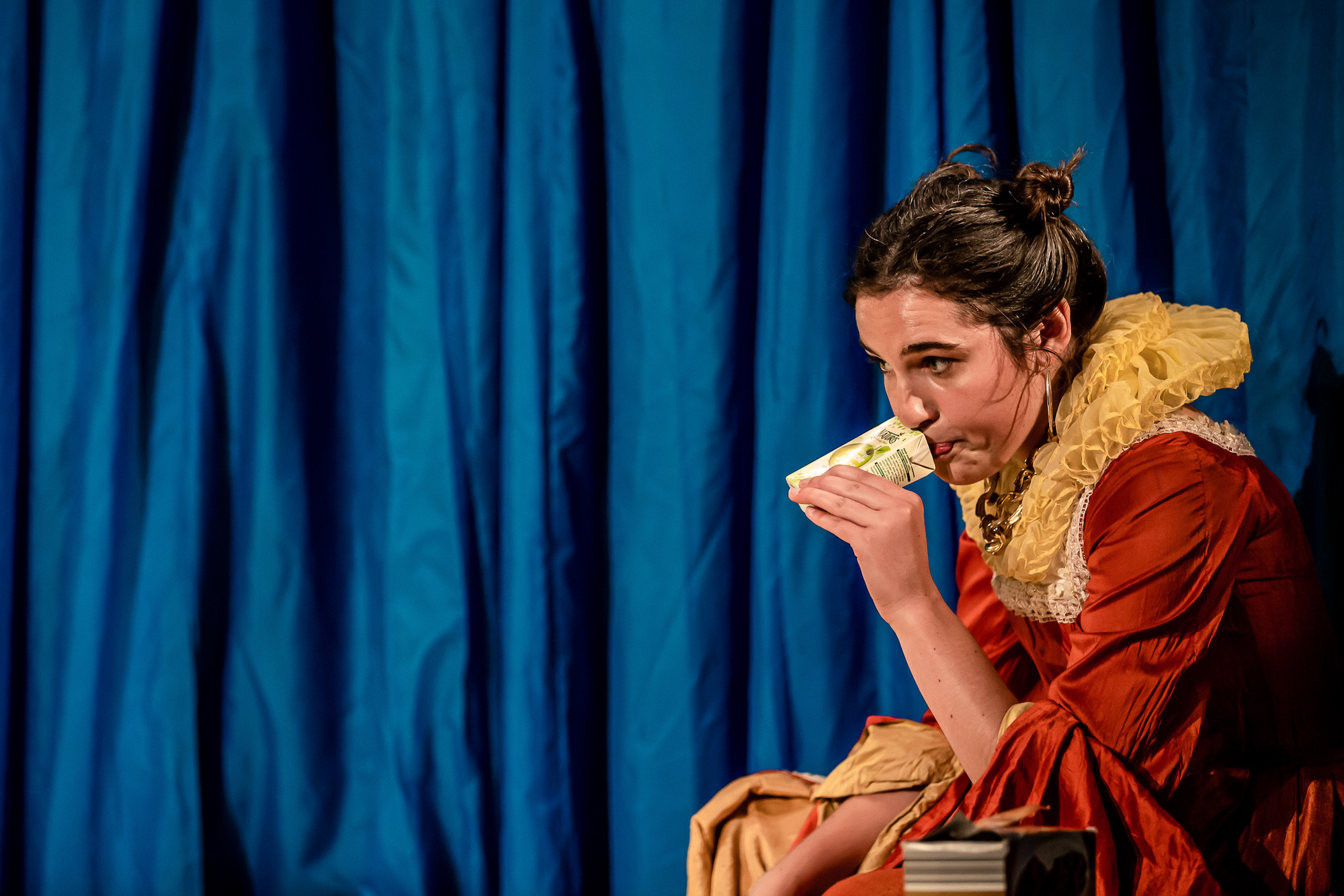
Wild Swimming
Presented by Full Rogue in association with The Pleasance and Bristol Old Vic Ferment
©The Other Richard
How did you find your way into the industry?
I thought theatre was shit. I went to a pantomime when I was about four years old with my grandparents and I had to sit still, quietly, for over an hour and I couldn’t understand why anyone would choose to watch it over playing football.
I didn’t really go back until my school took me to see a production by Sally Cookson called Jane Eyre when I was 17. I thought I’d hate it because Jane Eyre is this really thick book, written by this dead woman. All the writing is super close together and there aren’t any pictures. Why anyone would ever CHOOSE to read it was beyond me. But it was really fucking good. There was loads of music and running and FIRE and it made my bones get all excited and I loved it.
I joined Bristol Old Vic Young Company and did some shows with them. We were taken seriously as theatre makers and were expected to make work that was of a professional standard and I LOVED that. The fact that I was a young person was irrelevant which was so cool. I left school and did an amazing course called Made In Bristol, Bristol Old Vic’s year-long training scheme where you’re given space and support as a group of twelve young people to create a piece of theatre that’s of a professional standard created through a devising process. You’re guided by professionals working in the industry, in a building that MAKES theatre, not just a theatre that houses plays, so you’re constantly around incredibly creative people.
I also ushered and worked on Box Office to pay my rent. It meant I got to watch shows (you are strictly watching the audience as an usher and ABSOLUTELY NEVER watch the play) over and over again and start picking them apart. That’s probably the start of where I got interested in directing. When Made In Bristol finished, I started working as a workshop leader with Bristol Old Vic’s Engagement Department working with loads of awesome young people in Bristol.
Last year I received a Bristol Ferment Leverhulme Scholarship which supported my development as a director by allowing me to learn in exactly the way I wanted to learn. They gave me space, money and endless support so I went and observed loads of theatres and directors who I admire (and some who I don’t like). It allowed me to start developing my own practice and voice as a director. It’s only very recently that I started calling myself a director.
For a long time I felt guilty for not having done a degree. Who am I to stand in a room and pretend I can steer this ship if I’m younger than all these people and I don’t have as many academic qualifications as them? I desperately started reading loads of BORING books about directing written by loads of FAMOUS DEAD DIRECTOR MEN and then I just stopped. I decided I didn’t want to know how you were ‘meant to direct’ and I had no interest in replicating these BORING men.
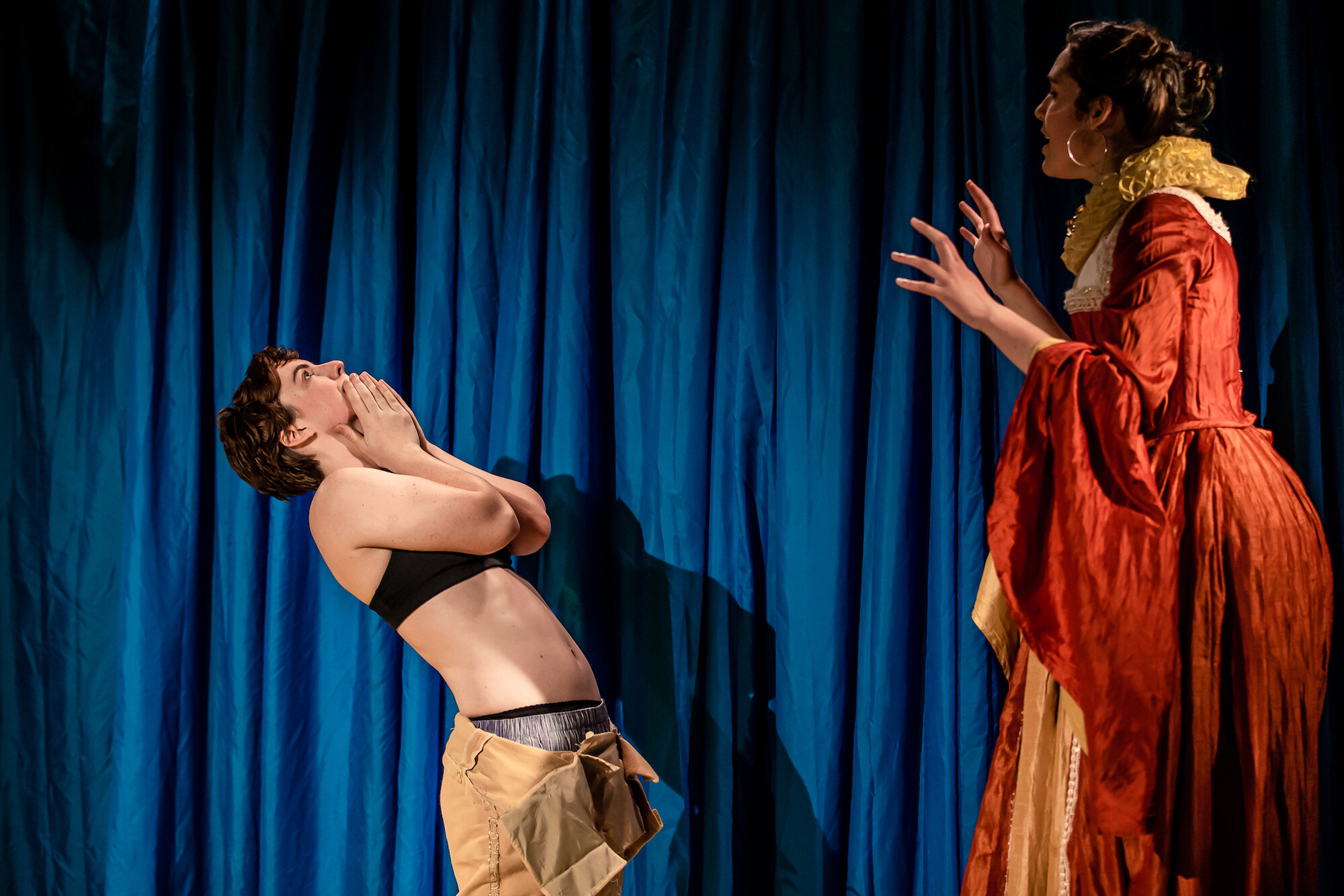
©The Other Richard
Do you have any tips for other young women who might want to make work like yours?
Make the work you want to make in the way you want to make it. That feels important.
Don’t make it on behalf of somebody else and don’t make it in a way you think it should be made. Don’t artistically compromise for anybody even if that means it takes longer and you fail more, that’s fine. What I love about FullRogue is that the room exists exactly how I want the room to exist and I can be completely myself, I don’t have to pretend to be anyone else.
Have confidence in your own voice and recognise that your voice adds value to a space. But you have to recognise that and feel confident in that because for a long time no one else will.
Always make work out of LOVE not out of FEAR. Allow your love for something to drive you rather than your FEAR of doing something wrong. Know that you will make loads of TERRIBLE WORK. Don’t hide from the bad work. Don’t avoid the bad work in order to look good. RUN. RUN AT THE BAD WORK. RUN REALLY FAST AT THE BAD WORK. RUN AT IT WITH OTHER PEOPLE. Make bad work, make it again, make it worse and then somewhere amongst all the BAD there will be something really exciting.
How does being neurodiverse affect the way you work?
It affects every part of me, it is both the best and worst thing about me. It is completely embedded in who I am so I can’t separate it from the work I make.
For a long time, I tried to make work that was calm and quiet and beautiful. Anyone that knows me will know what a ridiculous idea that is. Of the last three shows I’ve made, one ended with the whole set on FIRE, one with the stage covered in BLOOD and RUBBLE and the other with a beautiful painting of Adam and Eve covered in OIL. I’m not a very neat person. I like mess.
When I started making work I tried to hide it and not tell anyone, people associate ADHD with naughty boys so it’s confusing that an adult woman might have it. I was pretty terrible at hiding it and it was SO BORING being a boring adult. So I stopped and started accepting that it would be part of all the work I make. And that was EXCITING. FullRogue is essentially an ADHD-brain abusing Marek Horn’s writing. When I realised it might be useful and interesting to include the part of my brain that’s not very good at sitting still and that gets bored really easily, it became much easier.
It makes applications harder, it makes writing stuff harder, it makes doing boring adult things like tax and emails and being polite harder. I get stuff wrong and piss people off constantly so I have to ask for forgiveness LOTS. But THANK GOD I work in this industry, imagine if I was an accountant in an office. That would be tragic.
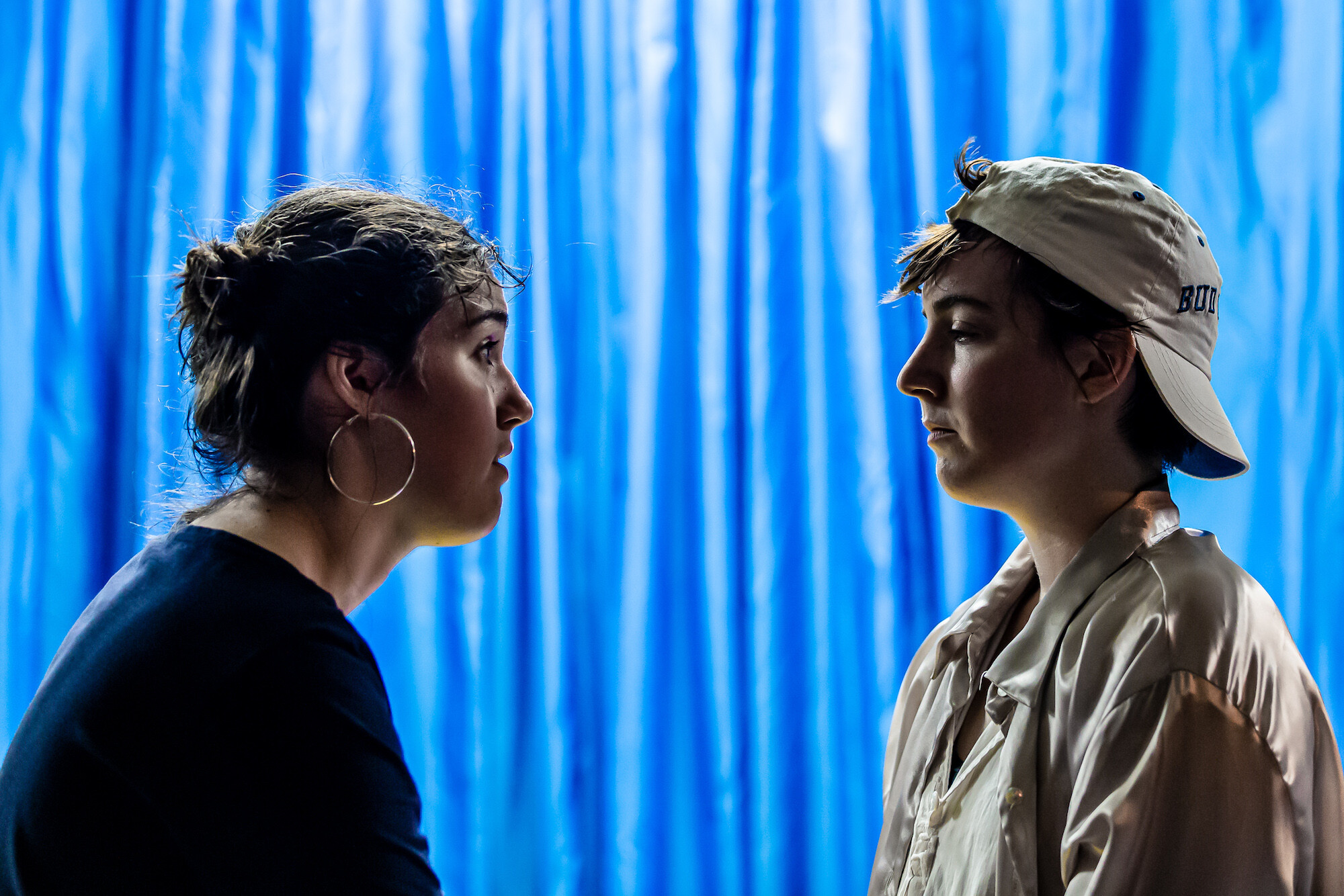
©The Other Richard
Tell us the story of Wild Swimming.
It’s about two people called Nell and Oscar who meet on the beach in the 16thcentury. We keep meeting them for the next 400 years on the same beach. It’s about feminism and masculinity and friendship – two mates that really love each other but there’s these 400 years that get in the way. It’s a really great night out and there’s snacks. Fun snacks!
Why did you cast a female actress in the role of Oscar?
I approached Marek (a cis straight middle-class white man) 2 years ago because I wanted to make a play about feminism and masculinity. It was really important to me that the cis straight white middle class man was engaged in a conversation and wasn’t allowed to say, “lovely story but it’s not for me”. The character of Oscar was always going to be played by a male actor who closely matched the description of Oscar – a cis straight upper-class white man. I wanted him to stand onstage and have to explain himself and all men at once, something women are so often asked to do.
We did a version of Wild Swimmingat Ferment Fortnight and were struggling to find good male actors that were available. Our mate Georgia is an amazing actor and would be perfect for the part but sadly she didn’t have a penis. We then (OBVIOUSLY) decided that wasn’t a good enough reason to not work with her and that Ferment was the perfect environment to try stuff out. So, one night we cast Euan, a man, and the other night Georgia, a woman.
What was interesting was that, when Euan was on stage, Marek’s voice became too loud. You started to feel sorry for him, you started to sympathise with him and that wasn’t our intention. When we recast the play for Edinburgh, we auditioned loads of amazing women, non-binary and trans performers and chose Annabel who is totally captivating, it’s hard to imagine it being a man now.
I love the subtext that comes out of it being two women, the historic nature of women having to pretend to be men to be successful and the hidden relationships that happened between women throughout history and, as a queer woman, that was cool to discover.
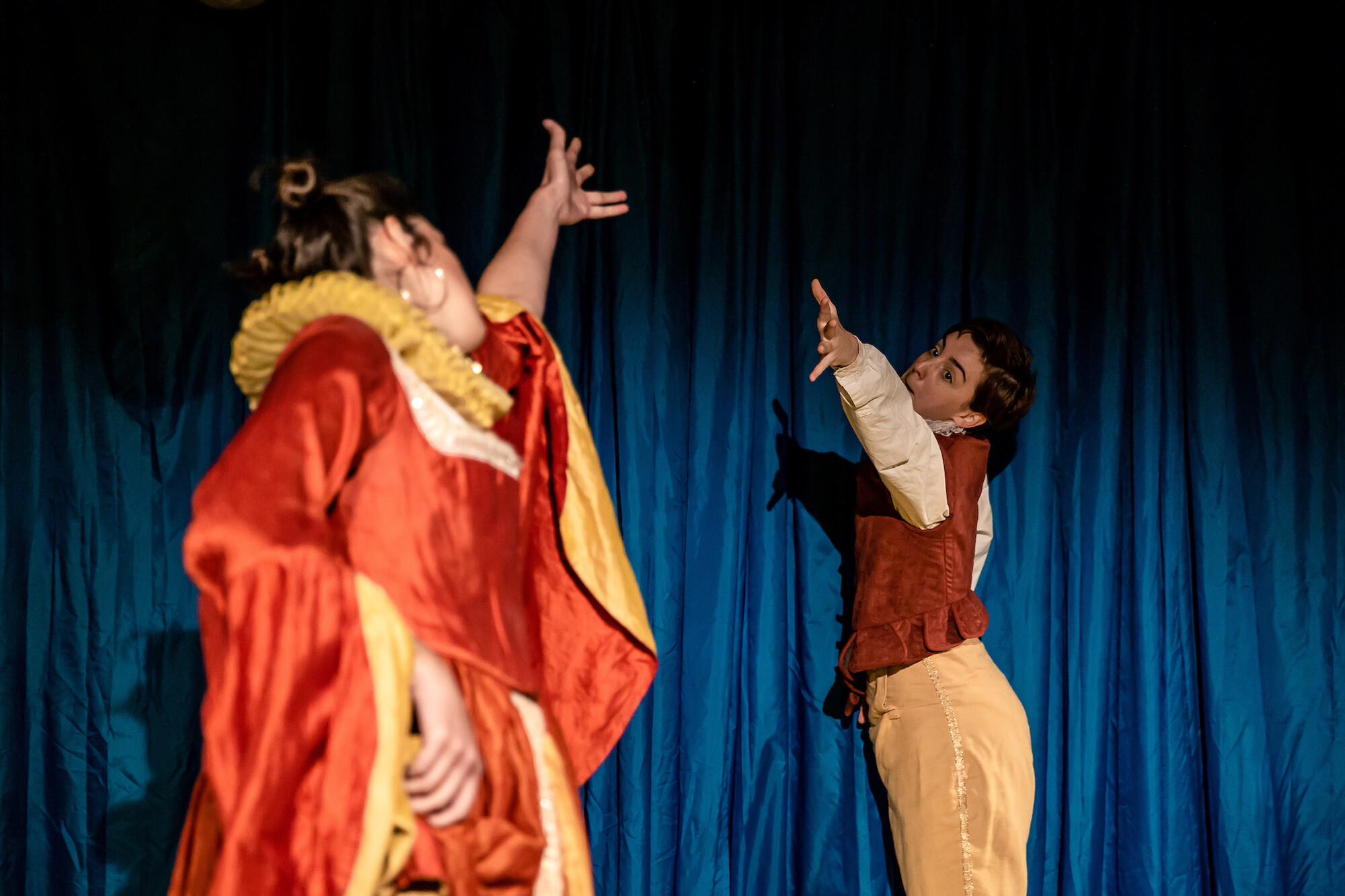
©The Other Richard
How did you approach putting Marek’s writing onstage?
The way we work as a company is that, through intense collaboration, Marek writes a piece of text and then we, together with some brilliant actors, stress testit. Have you seen the videos where they test seatbelts? They strap a dummy into a car and ram it, at high speed, into a wall to see if the dummy survives. We work a bit like that really.
A lot of new plays are wrapped up in cotton wool. People treat them like little baby birds that could get crushed. They put it, very gently, on stage in exactly the way the playwright wants it to be done. But what happens when you treat new plays with the same rigour that you treat a Shakespeare play? What if you assume it’s totally indestructible? That’s what FullRogue exists to test.
What’s the difference between what this play felt like during Ferment and how it feels now after EdFringe?
The script is the same. We put on the full script at Ferment with 3 days rehearsal. Now we’ve had three weeks rehearsal and a four-week run. It feels like it’s in our soul now, it’s in our skin. Annabel and Alice know the play so well, so they can really push the boundaries of what happens each day, it’s so exciting to watch. Their relationship has grown into something amazing, you should come just for them, they’re fucking incredible. I pissed myself in Edinburgh. Genuinely pissed my pants. I was meant to go and watch a play after our showbut Annabel said something so funny that I literally wet myself and had to go home and change.
We actually had a load of audience members from Edinburgh come back to watch it over and over again because it’s live every night and so you’re part of something that won’t exist tomorrow, that feels cool. I’m excited to see how Bristol find it.
What do you think men will get out of watching this play?
It has always been really important to me that men are as included in the discussion of feminism as women are. So I hope men feel included. I hope they feel part of the discussion. I find some feminist theatre can feel like an attack on men. There are so many men I love and I appreciate that it’s really hard, sometimes, and that it’s really fucking easy other times.
As a kid I never called myself a woman, I was embarrassed to be associated with a group of people who were meant to be bad at throwing, wear dresses and like pink. I didn’t fit the ‘traditional’ format of a woman. I have always been very masculine and I love that. Marek has always felt quite effeminate. We decided early on that we didn’t want to try and solve anything, we didn’t want to ‘fix’ the downfall of masculinity but instead offer a few thoughts that might allow the discussion to be as complex and multifaceted as it is in real life.
It always infuriates me that any artist that isn’t a white man is also asked to represent their whole gender or race or ability at the same time as achieving a piece of highly accomplished art. I am expected to represent the whole of feminism and all women in one go and white men can write about whatever floats their boat. They don’t belong to a collective the same way which can sometimes be incredibly liberating but also quite lonely.
What’s next for FullRogue?
Well we’re hopefully going to tour Wild Swimming. We want to do it EVERYWHERE. I’d say a world tour but I hate flying so they’ll have to go without me. We’re also working on our next show, Oktopodeez, It’s about octopuses and dancing and David Bowie.
Also, we’re in the Bristol Old Vic Studio from 10-21 September so you should come and see it and say hi. If you’ve never been to the theatre before or you’re not sure what to expect don’t worry, it’s really chilled out, we’ll give you a Fruit Winder or a packet of Hula Hoops and we can have a great night.
Do what Julia says just above and head to the Bristol Old Vic 10-21 September to catch Wild Swimming. Grab a ticket now.



